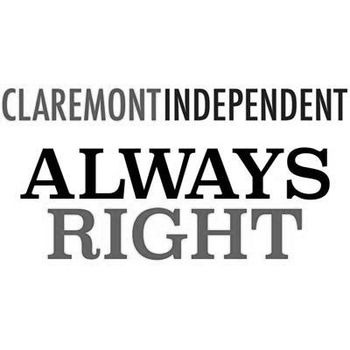Pomona event teaches social justice buzzwords to dupe conservatives
A committee in Pomona College’s Asian American Resource Center organized an event to “break down activist language” and explain social justice terms.
Pomona College’s REACH (Revolutionizing Education, Advancing Collaborative Hxstories [sic]) committee of the Asian American Resource Center (AARC) organized an event called “How //Not// to Talk Like an Activist” on campus to teach students the definitions and usage of language used by social justice activists.
“Sometimes it’s impossible to figure out what students at the Claremont Colleges are talking about, even when we’re talking about things that everyone needs to understand. Join the AARC’s REACH committee to discuss how we can break down activist language,” states the event description.
The organizers added that the event will “explore key terms in describing social change and figure out how to make those terms accessible for ourselves and our communities,” and affirmed that “this event is open to students at the 7Cs and centers students of color and allies.”
The event description also gave examples of what terms would be discussed: “Intersectionality. Cisheteropatriarchy. Toxic masculinity.”
According to its description, the AARC “works in collaboration with other ethnic groups, academic departments, and campus offices to sponsor a wide range of educational endeavors.”
The organizers started the event by stating that students sometimes “hear words tossed around and repeat them and sometimes we don’t stop to think what they mean or about how we’re using them to make our change-making ineffective or effective,” adding that the “goal of this event is to break these terms down,” referring to “commonly used buzzwords.”
They then emphasized that “they are not buzzwords to elevate ourselves above others, but…ways to understand actual problems society has,” and further stated that “it’s not bad that these are being more popularized…but we want to use this event as a way to understand the historical roots of these terms.”
Attendees later broke down into smaller groups to discuss definitions for the following words and phrases: intersectionality, identity politics, structural oppression, safe spaces, “cisheteropatriarchy,” toxic masculinity, white supremacy, and privilege. Participants tried defining those words in small groups before the actual definitions—drawn from Harvey Mudd College, Columbia University, the Catalyst Project, and the blog Decolonize All the Things (D.A.T.T.)— were revealed.
According to its website, the Catalyst Project believes “that racism is one of the fundamental forces keeping systemic injustice in place, and as white people we believe we have a strategic role to play in ending it.” The author of D.A.T.T., in a description of his ideology, states that he is “interested in the complete liberation of all peoples from white patriarchy, capitalism, oligarchy, colonialism, settlement, as well as orientalism.”
Examples of definitions included “a system of power based on the supremacy & dominance of cisheterosexual men through the exploitation & oppression of women and the LGBTQIA”—drawn from D.A.T.T—for “cisheteropatriarchy.”
“Privilege” was defined as operating “on personal, interpersonal, cultural, and institutional levels and gives advantages, favors, and benefits to members of dominant groups at the expense of members of target groups”—based off a document from Harvey Mudd College’s Office of Institutional Diversity.
Samuel Breslow (PO ’18) told the Independent that he thought “the event did a really good job of helping us be more cognizant about carefully articulating what we mean with the terminology we use,” adding that “it can be hard for us, as progressives, to have constructive discourse with conservatives when the social justice concepts that we refer to have been distorted and caricatured by Fox News to the point where they mean something totally different. Using words that have widely agreed-upon definitions can help us communicate more clearly with each other and can help avoid misunderstandings.”
This article was originally published in The Claremont Independent, a conservative student newspaper affiliated with the Leadership Institute's Campus Leadership Program. Its articles are republished here with permission.
Follow The Claremont Independent on Twitter: @CmontInd

